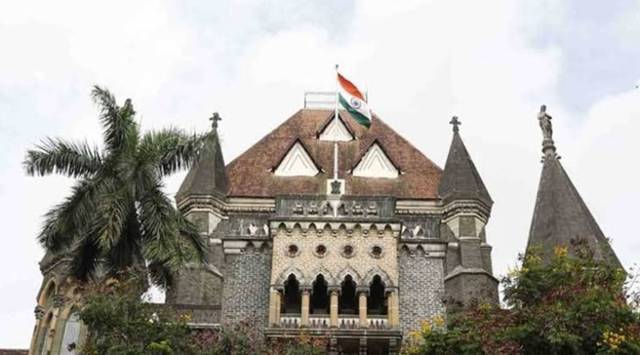HC pulls up BMC for covering only 2.5% of 74, 682 manholes with protective grills
This came after the court was informed that over 1,900 manholes in flood-prone areas in the city had protective grills, following a 2018 HC order.
 A division bench of acting Chief Justice Nitin M Jamdar and Justice Sandeep V Marne was hearing a contempt petition filed by lawyer Ruju Thakker. The petition alleged that the civic authorities failed to implement the high court orders of 2018, directing the repair of potholes along all arterial roads in Mumbai and devising a uniform mechanism to redress citizens’ grievances related to bad roads and potholes.
A division bench of acting Chief Justice Nitin M Jamdar and Justice Sandeep V Marne was hearing a contempt petition filed by lawyer Ruju Thakker. The petition alleged that the civic authorities failed to implement the high court orders of 2018, directing the repair of potholes along all arterial roads in Mumbai and devising a uniform mechanism to redress citizens’ grievances related to bad roads and potholes.
The Bombay High Court on Wednesday questioned why the Brihanmumbai Municipal Corporation (BMC) cannot install protective grills to all 74,000 manholes in the city as there is a likelihood of a person falling in an open manhole even in areas which are not open to floods.
This came after the court was informed that over 1,900 manholes in flood-prone areas in the city had protective grills, following a 2018 HC order. The high court sought to know why the 2018 decision, despite five years having passed by, was not complied with and why over 70,000 manholes are still not covered with protective grills.
A division bench of acting Chief Justice Nitin M Jamdar and Justice Sandeep V Marne was hearing a contempt petition filed by lawyer Ruju Thakker. The petition alleged that the civic authorities failed to implement the high court orders of 2018, directing the repair of potholes along all arterial roads in Mumbai and devising a uniform mechanism to redress citizens’ grievances related to bad roads and potholes.
In January this year, the BMC, through its commissioner Iqbal Singh Chahal, told the high court that it is exploring the option of geo-tagging manholes, its chambers and covers so that ward officers can take prompt action in case a manhole cover is stolen.
On June 7, the court asked BMC to inform whether it will constitute a special cell to immediately address the problem of open manholes during monsoon.
Responding to the court’s query as to whether a special cell will be constituted to address the problem of open manholes in monsoon, the civic body in its affidavit stated that its Disaster Management Committee will work as a coordinating cell.
In 2018, the court had expressed concern after a medical practitioner fell in a manhole and lost his life. It had passed several directions to cover manholes.
Senior advocate Anil Sakhare, representing the BMC, submitted that the cost of each protective grill is nearly Rs. 14,000, therefore a decision was taken to equip each manhole with a protective grill in the flood-prone areas.
Sakhare also added that if the manhole is open and the lid is stolen, it is attended within eight hours and fixed and till then, barricades are put up to keep pedestrians and motorists informed about the open manhole.
“Can there not be an inbuilt mechanism within the manhole itself where you can prevent people falling in it? If the lid is stolen, the fall can be arrested by way of mechanism with a cross bar. It’s our query and not our opinion. They are completely open. Anyone can fall through it. As regards to not providing safety mechanisms in manholes for areas other than flood prone regions, the reason you are giving is finance? If you put safety mechanisms for every manhole, there won’t be any problem at all. By the time you attend to stolen manhole, a life could be lost,” the bench remarked.
The bench noted that while the precautionary measure the corporation intended to take was to fix protective grills, the civic body’s affidavit indicated that as per chief engineer (sewerage operation), out of the 74,682 manholes, only 1,908 of them have protective grills as they fall in flood-prone areas.
“According to us, it is not in consonance with the 2018 HC decisions, which had issued directions for the safety of residents in regard to manholes. Five years have gone by, yet less than 10 per cent of manholes have protective grills. Prima facie, we find no reason as to why the same protective measure is not extended to all manholes, so that no such incident takes place, as it is quite likely that areas not supposed to be flooded for some reason face this issue.”
Sakhare said the issue will be placed before the concerned officer and the stand of municipal officials will be conveyed to the court. The bench posted the matter for further hearing to June 19.












